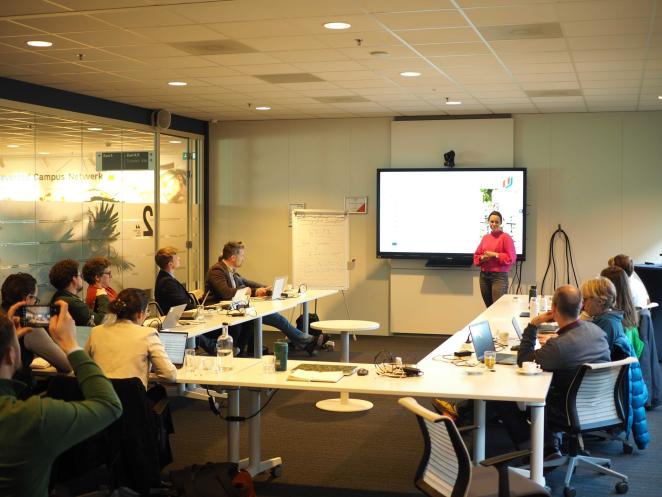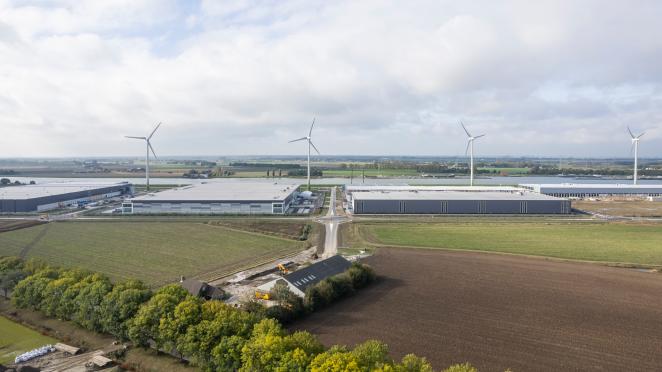Frontrunners in city energy planning met in Dordrecht on March 18-19, 2025 to advance local energy planning for energy affordability and business competitiveness.

Building a city energy economy mindset
The summit's central theme, "Thinking Beyond Pilots: From Operation to Strategy," focused on scaling local energy action planning, being developed in the COPPER project, into a broader mindset from cities – activating all available tools to steer the energy transition towards the twin goals of sustainability and affordability for business and citizens. Discussions emphasised the need for strategic narratives to engage policymakers at the local, national, and EU levels, and to foster collaboration between cities and Distribution System Operators (DSOs) and create a competitive and affordable local energy economy.

Day 1 - Hearing from European Best Practice
The first day featured keynote presentations that set the stage for the summit's objectives, aiming to inspire with best practices from across Europe.
Chris van Benschop, Deputy-Mayor of Dordrecht, highlighted the strategic importance of energy transition for the city's economic growth, particularly in the face of grid congestion at its nine business parks.
Maarja Meitern from TenneT addressed the necessity for greater coordination between DSOs and Transmission System Operators (TSOs) to alleviate grid constraints.
Rolf Bastiaanssen of Bax drew attention to the disparity between rising centralized energy prices and the decreasing costs of decentralized energy solutions, questioning the efficacy of current city approaches.
The day concluded with a tour of the building hosting the summit, the Duurzaamheidsfabriek in Dordrecht. Duurzaamheidsfabriek is a vocational school with an emphasis on practical experimentation and fun. The partnership took a tour of the facilities, including their "Energy Transition House", where students learn to be energy system technicians through hands on experimentation.

Day 2 - Building a political storyline for city energy planning
Day two centered on strategic discussions and collaborative planning to translate the summit's insights into actionable outcomes. A key focus was on developing a compelling local energy planning storyline to advocate for policy changes at the European Commission level.
Partners explored policy recommendations, including the implementation of energy sharing across EU member states, the establishment of dedicated city hall departments to interface with DSOs, and ensuring stable supply chains for energy transition materials. The integration of LEAPs into existing city climate plans and the growing importance of energy resilience as a strategic priority were also key discussion points.
The meeting was finished with a keynote from Sven van Elst of ASTER, who presented the innovative Special Purpose Vehicle (SPV) legal structures that have successfully reduced electricity prices for social housing tenants across Flanders.

Key Takeaways
Sector-specific scaling (with a focus on industry) is required: The transition must move beyond pilot projects to scalable solutions for industrial zones, mobility, and housing, with specific outcome targets covering all users.
Planning needs to be backed up by a strategic narrative for political decisionmakers: Effective communication of a strategic LEAP storyline is crucial to influence local, national, and EU policymakers. This narrative should emphasize the multiple benefits of local energy system transformation, including economic competitiveness, social progress, and strategic autonomy.
City-DSO Collaboration is Essential to the future of city energy: Strong partnerships between cities and DSOs are essential, leveraging data sharing and flexibility to optimize investments and accelerate the energy transition.
Innovative Models are Emerging Rapidly: New business and delivery models, such as Clean Energy Hub initiatives in Dordrecht, are emerging to drive the energy transition.
Affordable Energy Must be a Priority: Cities must address energy affordability, with examples like ASTER demonstrating the potential for significantly lower consumer energy prices through scaled public initiatives.
COPPER’s next summit will be in Fredericia in Denmark in September 2025. Interested in contributing? Get in touch!
